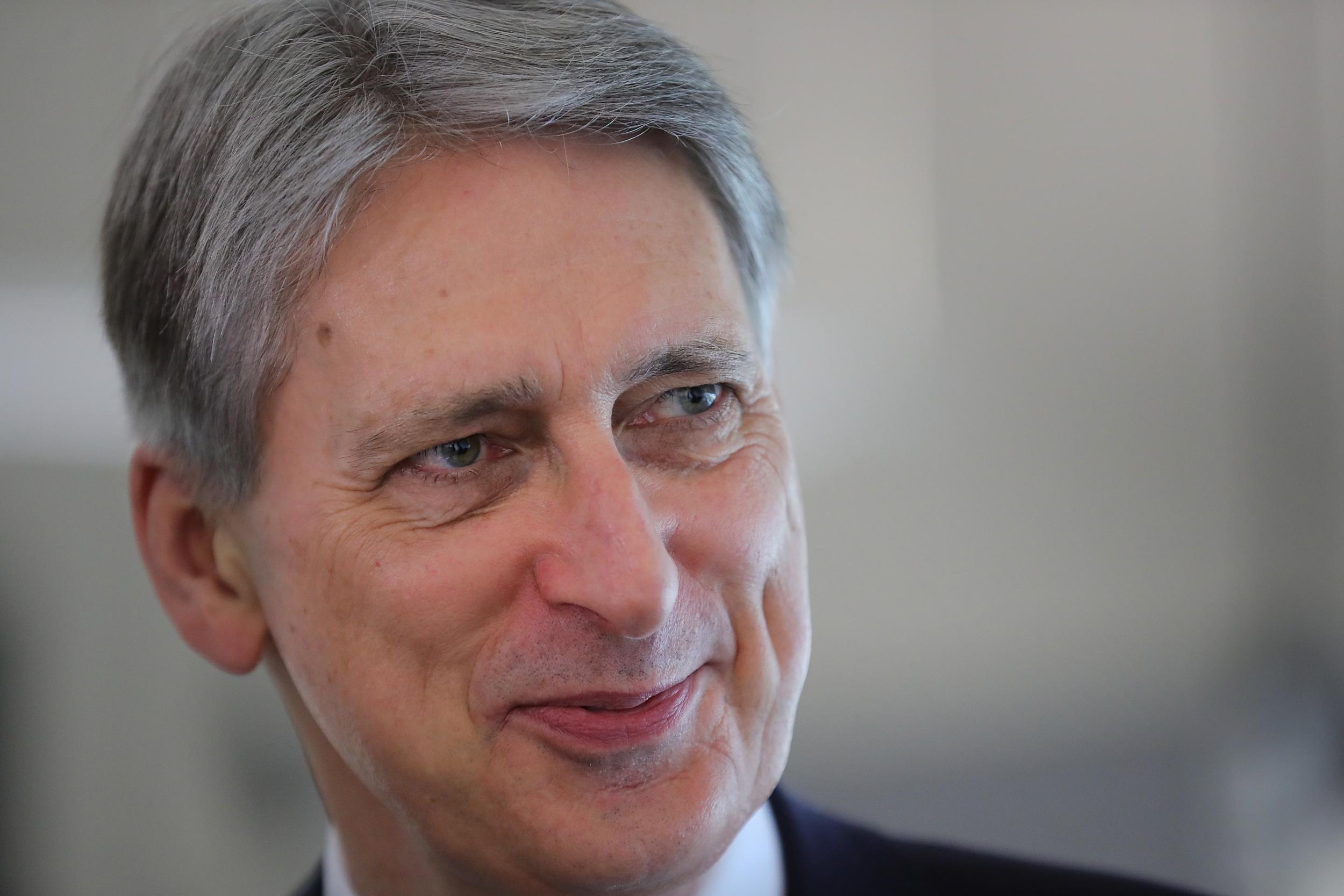Philip Hammond signals he is ditching Tory pledge not to raise taxes
The Chancellor said the pledge made it difficult to manage the economy

The Chancellor has hinted that he will drop the Conservatives’ flagship pledge not to raise taxes in the next Parliament.
Philip Hammond is currently bound by a promise made in the 2015 Tory manifesto not to raise income tax, VAT or national insurance.
But Mr Hammond said on Friday that the pledge made it harder to properly manage the economy, strongly suggesting that it would not be repeated in June’s Tory manifesto.
The Chancellor was recently embroiled in a Budget row about the pledge after he moved to raise NI for self-employed workers. Government spokespeople initially claimed the policy didn’t break the manifesto promise, but the policy was quickly dropped after a backlash.
Speaking in Washington DC on Friday Mr Hammond said: “I’m a Conservative. I didn’t come into politics because I believe in higher taxes. I’m not in the business of having an ideological desire to raise taxes.
“But we need to manage the economy sensibly and sustainably. We need to get the fiscal accounts back into shape. It was self-evidently clear that the commitments that were made in the 2015 manifesto did and do today constrain the ability to manage the economy flexibly.”
He later added: "“We are and will always be the low-tax party. And Labour will always be the high tax party.”
Labour seized on the admission, with campaign chief Andrew Gwynne said the Chancellor was dropping the pledge due to “his own economic failure”.
The MP said: “Should the Tories win the next election, is that there’s a tax bombshell – a Tory tax bombshell – on the way, and you can bet your bottom dollar it will be hardworking low- to middle-earning families that will feel the pain because it’s those families that have felt the pain over the last seven years while there have been massive tax giveaways to those at the very top.”
David Cameron’s former director of strategic communications revealed in 2016 that the pledge was “cooked-up on the hoof” and suggested that it was “one of the dumbest economic policies anyone could make”.
As well as the tax lock, the Conservatives are also currently bound to meet strict deficit targets, and protect huge areas of public spending, including pensions, under the “triple lock” policy.
Taken together the Government has previously sought to balance the books by making sharp welfare cuts but has struggled to get ones that save significant amounts of money through Parliament. David Cameron was forced into a retreat on cuts to tax credits and disability benefits.
Join our commenting forum
Join thought-provoking conversations, follow other Independent readers and see their replies
Comments
Bookmark popover
Removed from bookmarks